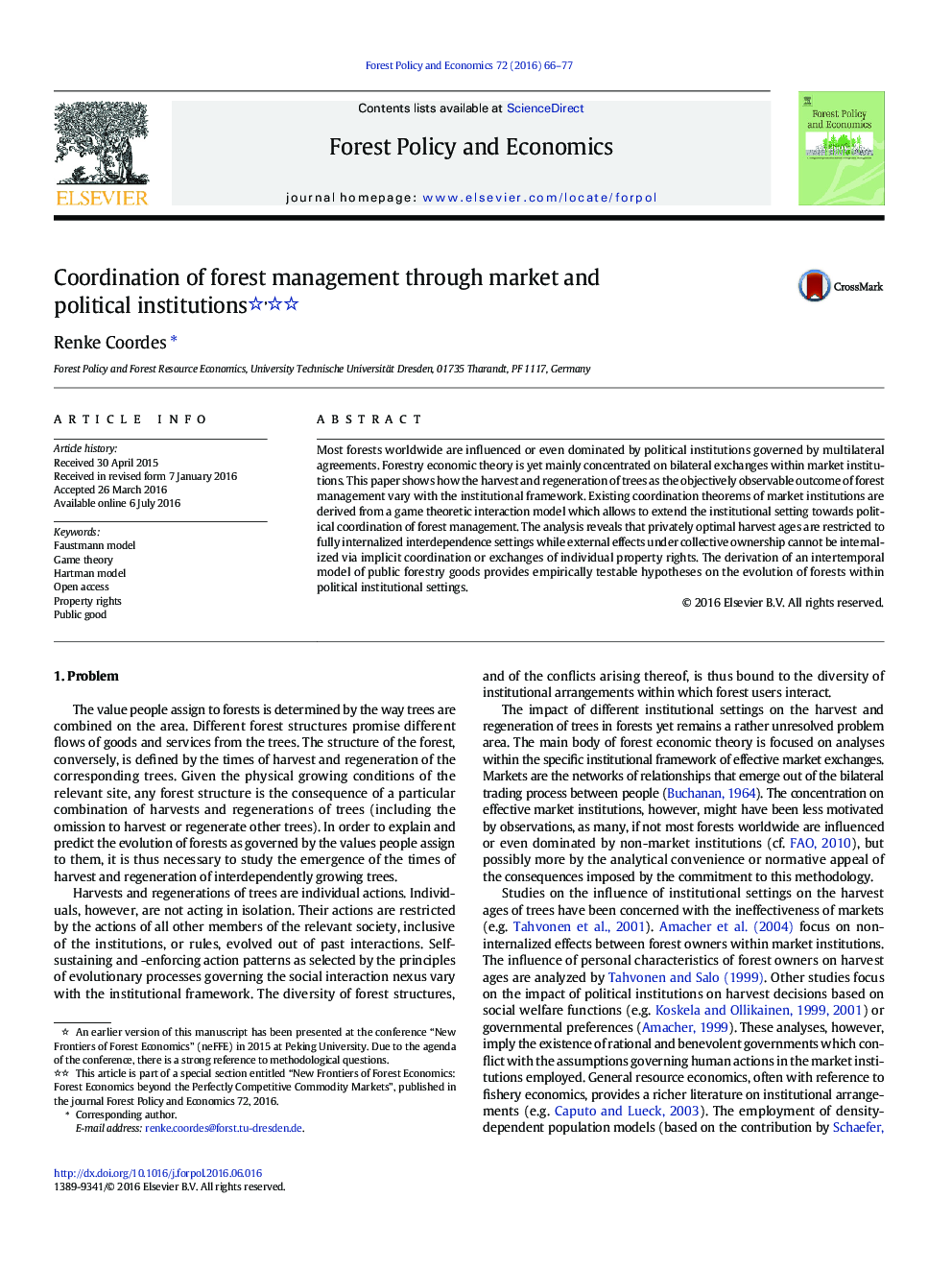| کد مقاله | کد نشریه | سال انتشار | مقاله انگلیسی | نسخه تمام متن |
|---|---|---|---|---|
| 6459886 | 1421667 | 2016 | 12 صفحه PDF | دانلود رایگان |
- The optimal harvest ages of trees are determined by the institutional setting.
- Silvicultural diversity emerges with institutional diversity.
- Cooperative and non-cooperative outcomes diverge for private and collective rights.
- With collective property rights, differing harvest ages cannot be internalized directly.
- The Faustmann rotation age emerges as a subgame perfect equilibrium.
Most forests worldwide are influenced or even dominated by political institutions governed by multilateral agreements. Forestry economic theory is yet mainly concentrated on bilateral exchanges within market institutions. This paper shows how the harvest and regeneration of trees as the objectively observable outcome of forest management vary with the institutional framework. Existing coordination theorems of market institutions are derived from a game theoretic interaction model which allows to extend the institutional setting towards political coordination of forest management. The analysis reveals that privately optimal harvest ages are restricted to fully internalized interdependence settings while external effects under collective ownership cannot be internalized via implicit coordination or exchanges of individual property rights. The derivation of an intertemporal model of public forestry goods provides empirically testable hypotheses on the evolution of forests within political institutional settings.
Journal: Forest Policy and Economics - Volume 72, November 2016, Pages 66-77
